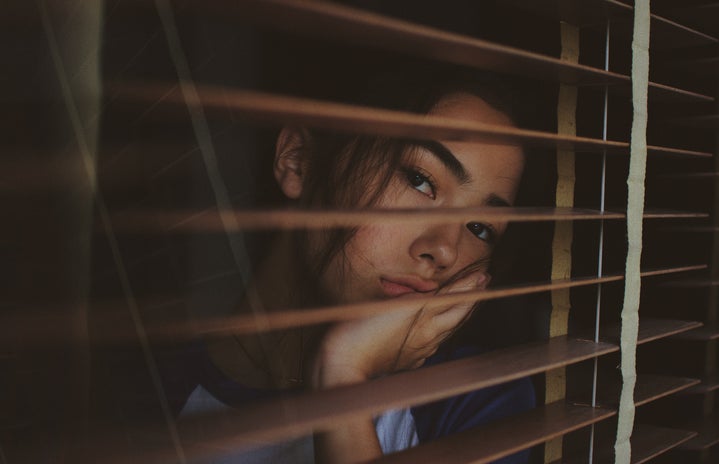Over the past year, I have heard the phrases quarantine and social distance more times than I can begin to count. These terms saturated most mainstream and social media headlines and entered everyday conversations. They became a call to action: Do your part to fight against COVID-19, and stay home. The year 2020 was a blur of “Supalonely” and whipped coffee as we minimized physical contact, retreated into our homes and disconnected ourselves from our loved ones.
We live in a time where social connectivity is more important than ever. However, social distancing confuses the difference between physical and social closeness. We weren’t asked to stop connecting with friends, family members and teachers. We didn’t have to stop checking in on our loved ones nor take a social media cleanse, but that’s what I found myself doing. I avoided close contact with my friends and family both physically and socially, digging myself into a deeper hole of isolation as the summer wore on. I gave a new, literal meaning to social distancing.
I’m a journalism major, so my career is rooted in words. I understand the weight and power behind them. Words shape our thoughts and behavior, so precision of language is crucial. Social distancing is a misnomer, which is exactly what we want to avoid in a time of uncertainty and tragedy. Rolling out a national strategy that implies cutting off communication and physical contact was a mistake. Feeling seen and heard is something everyone could use more of right now. This is why I yearn to rebrand social distancing as physical distancing. This change emphasizes how families, friends and neighborhoods can come together in new, incredible ways. Today’s era of social media and technology is a unifying force. Preserving connectivity while remaining physically distanced is made possible by FaceTime, Twitter, Facebook and yes, even Zoom. Extending a hand, even virtually, can be a guiding light to someone who is struggling. Having a normal conversation over an unconventional platform may be the only way to reestablish regularity in our lives.
Rebranding social distancing can change its connotation entirely. It can revive our own mental health and emphasize the importance of communication in such a detached world. For now, COVID-19 is here to stay. Our empathy and connectivity should remain constant, too. We can protect ourselves from the virus while supporting one another in times of hardship.
The pandemic taught me to play the best hand with the cards I have been dealt. I faced many high and low points throughout quarantine, and there were moments where I felt utterly defeated. I had a lot of time to reflect and grow as a person, but the moment this upward trajectory started was when I picked up the phone to call my grandma. She lives alone and has been self-quarantining since news of the pandemic broke. From then on, I made sure to call her regularly, and hearing her voice gave me comfort and a sense of normalcy in an uncertain time. I felt close to her, even though I had not seen her in months. Calling her allowed me to provide and receive support in our new, weird normal.
The past year and a half has been full of unimaginable grief and loss, but it has also been a period of growth; I am grateful for some of the habits I adopted in quarantine. COVID-19 struck before my freshman year at the University of Florida. Nothing could have prepared me to quarantine with my family for five months only to leave them in the fall for five months. Despite the 300 miles of physical distance between us, I called them regularly — sometimes twice a day — to curb the homesickness. Leaning on friends and family–despite not seeing them face to face–has given me so much support throughout the pandemic and now in college. They are my support system in our crazy world, and I am so thankful for them.
We will get through this together. Despite the many disappointments of 2020, one idea prevails: Our well-being depends on being physically distant but socially close. This strategy will help us mitigate the pandemic but keep our hopes high and spirit alive.

